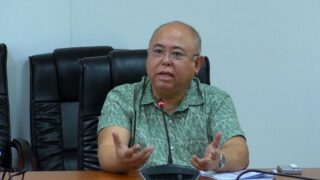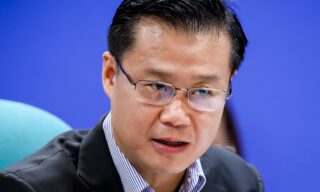Businesses are seeking the appointment of an “investor relations manager” who will serve as an ombudsman in championing the concerns and issues of existing and potential investors in the country.
Henry Schumacher, vice president for external affairs of the European Chamber of Commerce of the Philippines, defined the investor relations manager as a “high ranking official within the government network who investors can talk to, can present their cases of unfair treatment to and who will guide their valid concerns through the government bureaucracy.”
The said person will also be tasked to “assist in finding constructive solutions for both the unhappy investor and government—arriving hopefully at win-win situations.”
In a statement issued on Tuesday, Schumacher said the need for an investor relations manager in the government was long overdue.
While the Department of Trade and Industry (DTI) used to have an ombudsman for investors, the person occupying the position lasted for only a few years and was never replaced.
Such a point person has been deemed crucial in protecting and fighting for the interests of investors, a number of whom have been wooed by the government to set up shop in the Philippines.
“Ideally, such a person would have a Cabinet rank and assigned to the Office of the President. Why? It needs this kind of authority to cut through all the red tape, the fine print of laws and implementing rules and regulations, and the unwillingness of fellow government officials to see the ‘big picture’ rather than short-changing the old investors to look good in terms of tax revenues,” Schumacher explained.
He further stressed the need for such an investor ombudsman as he cited the case of energy developer San Roque Power Corp. (SRPC), which “did not find a ‘champion’ within government who would take up the cudgels for it, fight for it, or remind the new set of government officials that the promises of former governments need to be honored.”
He said SRPC was invited by the government to invest in a hydro power plant in the late 1990s and was provided with the incentive that all capital goods could be imported duty and tax free.
The company brought in equipment in the early 2000s and had to advance the payment for about P500 million worth of value-added taxes on the premise that the amount would be refunded once all documents were provided to the Bureau of Internal Revenue.



